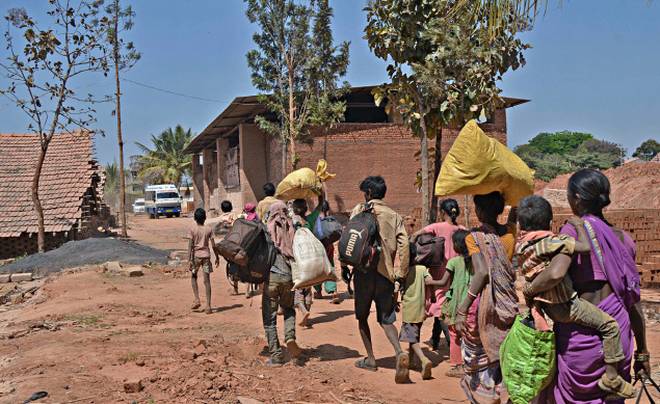Nuapada: Even as the district administration and the local police have aggressively started arresting middlemen to curb illegal trafficking of bonded labourers, lack of care to take care of the gloomy job scene in the district has defeated the purpose.
Achievements of the district administration, in this regard, have been outshone by the perennial problem of unemployment of poverty-stricken labourers in Nuapada district. Stuck between the devil and the deep sea, they strive hard to eke out a living, a report said.
According to reports, over 30,000 bonded labourers go out to other states from this district every year. They are compelled mostly to work under unconducive and hazardous work atmosphere.
A budget of about Rs 100 crore is allocated every year under various schemes and programmes of the state government. Despite such a huge allocation, bonded labourers are left to be exploited.
The state government has recently come forward to prevent illegal trafficking of bonded labourers. But no one is serious about the employment of such a large population. Under compulsion, they borrow money from creditors to meet their household expenses.
The intelligentsia of Nuapada district has appreciated the prolific efforts of the district administration. While at the same time, they have demanded a far reaching policy on employment of bonded labourers.
Notably, forced labour and debt bondage are common practices in India with widely reported cases in brick kilns, mining, carpet weaving, agriculture, manual scavenging, embroidery, textile and garment manufacturing industries.
PLIGHT OF BONDED LABOURERS
The Bonded labour system (abolition) Act, 1976 defines ‘bonded labour’ as a system of forced labour under which a debtor accepts an advance in cash or kind, in exchange for a pledge of labour for the benefit of creditor. However, the agreement can either be oral or in writing.
Debt bondage denies individuals the right to choose their employer or to negotiate the terms of their contract. Workers are forced to work until they repay a debt that is constantly manipulated and augmented through the imposition of interests, penalties and deductions.
Bonded labour system appears in many forms in Odisha, such as customary bondage (bartan/goti/halia/baramasia), debt bondage and bondage arising out of human-trading as commodities.






